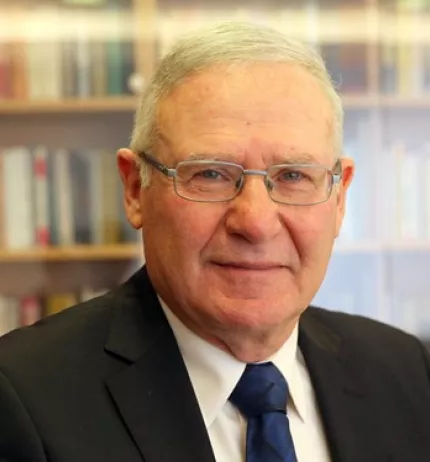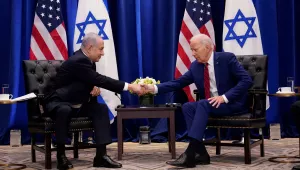Quick Takes
Quick perspectives on today's pressing topics
-
 Majid Asgaripour/Mehr News Agency via AP
Majid Asgaripour/Mehr News Agency via APIsrael Strikes Iran's Nuclear Program
Israel’s recent strike on Iranian nuclear facilities was carried out under the framework of the “Begin Doctrine,” the longstanding Israeli...
-
 Belfer Center
Belfer CenterIsrael and Hezbollah Trade Fire
Israel’s brazen attacks on Hezbollah last week, in which hundreds of pagers and two-way radios exploded and killed at least 37 people, graphically...
Major General (ret.) Amos Yadlin is a non-residential Senior Fellow with the Harvard Kennedy School’s Middle East Initiative. He joins the program after 40 years of service in the Israel Defense Forces (IDF). He served as a fighter pilot for 33 years, ultimately becoming Deputy Commander of the Israeli Air Force. He then earned the rank of Major General, served as a commander of the IDF Military Colleges and the National Defense College, Defense Attaché to the United States, and Chief of the Military Intelligence Directorate. He was Executive Director of the Institute for National Security Studies from 2011 to 2021; under his leadership it was named the number one think tank in the Middle East and North Africa by the University of Pennsylvania’s Global Go To Think Tank Index Report in 2020.
-
Senior Fellow, Middle East Initiative
Programs & Projects
-
Program






